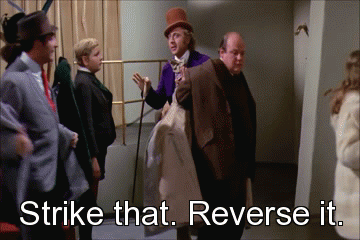By Leah Wohl-Pollack, Lead Editor This may come as a shock, considering I’ve been known to fall asleep cradling my Chicago Manual of Style, but I don’t believe proper grammar is the be-all and end-all when it comes to good creative writing. Like to split infinitives? No problem. Want to end a sentence in a preposition? Be my guest. But when you’re an indie author writing a novel, there are a few style and grammar rules you should always pay attention to. (See what I did there?) In this post, I’ll give you a rundown of two common grammar mistakes—misplaced modifiers and dangling participles—and some tools you can use to eliminate them from your writing. 
 Still with me? Good. Let’s move on to participial phrases. A participial phrase contains a participle and modifies the subject of a sentence. It’s just like the sleeping cat, but it has two clauses instead of one. Here’s an example of a participial phrase used correctly:
Still with me? Good. Let’s move on to participial phrases. A participial phrase contains a participle and modifies the subject of a sentence. It’s just like the sleeping cat, but it has two clauses instead of one. Here’s an example of a participial phrase used correctly: Another solution would be to rephrase the sentence so the subject comes first:
Another solution would be to rephrase the sentence so the subject comes first:

1. Misplaced modifiers
Misplaced modifiers are among my favorite grammar mistakes, mostly for their unintended humor. Modifiers come in several forms: words, phrases, and clauses. Because they warrant their own discussion, we’ll cover modifying phrases/clauses in the next section on dangling participles. Right now, let’s look at the issue of misplaced adjectives and adverbs. As you may know, a modifier is a word or phrase that describes a noun within the same sentence. It usually describes the noun it is closest to, which is why misplacing one can cause undesired absurdity or confusion. Here’s an example of a sentence with a misplaced adjective:The flimsy man’s kite ripped when it got caught in a tree.
Spoken aloud, the meaning may or may not be clear, but written down, there’s an obvious problem. The adjective flimsy is meant to describe the noun kite, but in its current placement, it’s modifying the noun man. Placing the modifier correctly would look like this:The man’s flimsy kite ripped when it got caught in a tree.

Easy enough. But what about when a misplaced modifier is an adverb rather than an adjective? For example:
They considered whether to play the game Sarah had brought thoughtfully.
While Sarah may have consciously brought a particular game to the party, to say she had brought it thoughtfully doesn’t make a lot of sense. Instead, the modifying adverb thoughtfully should be moved to sit in front of the verb it is intended to modify.They thoughtfully considered whether to play the game Sarah had brought.
A misplaced adverb can also cause something called a squinting modifier—a modifier that could potentially look toward (hence the word “squinting”) either the noun before or after it. Take a look at the example below, as squinting modifiers can be tricky to spot.Runners who practice often can go longer distances before getting tired.
The squinting modifier in this sentence allows for two potential interpretations:
Runners practice often so they can go longer distances. Runners can often go longer distances as a result of practicing.
How you fix this sentence will depend on your intended meaning. If it’s the first meaning you’re going for, you could try rephrasing the sentence without an adverb to avoid further confusion:
Regular practice helps runners go longer distances before getting tired.
If it’s the second meaning, you could try a more descriptive adverb:
Runners who practice can usually run longer distances before getting tired.
2. Dangling participles
As I mentioned earlier, dangling participles are a particular kind of misplaced modifier, and an incredibly common one at that—I find at least one in every novel I edit. In order to understand how not to dangle participles, let’s start with a quick refresher on what they are. To form a participle, take any verb (let’s go with sleep) and add an -ing ending. Then you have the present participle of the verb (sleeping). To use the present participle as a modifier, you could write:Don’t wake the sleeping cat.
The participle sleeping acts as a modifier for the noun cat. Still with me? Good. Let’s move on to participial phrases. A participial phrase contains a participle and modifies the subject of a sentence. It’s just like the sleeping cat, but it has two clauses instead of one. Here’s an example of a participial phrase used correctly:
Still with me? Good. Let’s move on to participial phrases. A participial phrase contains a participle and modifies the subject of a sentence. It’s just like the sleeping cat, but it has two clauses instead of one. Here’s an example of a participial phrase used correctly:Smiling at everyone she passed, Stacy walked to the restaurant.
Participial phrase (modifier): Smiling at everyone she passed Subject of the sentence (noun): Stacy A dangling participle typically occurs at the beginning of a sentence, like with the previous example, but unlike the misplaced modifiers we covered in section one, you can’t fix a dangling participle just by moving it to a different spot in the sentence. The reason is that a dangling participle ties the modifier to the wrong subject, usually because the subject is either missing or in the wrong place. Here’s an example of a sentence with a dangling participle at the beginning—a popular construction:Watching the clock, the minutes drag by.
So the participial phrase occurs right at the beginning of the sentence; that’s fine. The problem occurs in the second clause, where we seem to have a missing persons case on our hands. Here, the minutes take the subject’s place. In other words, the minutes are watching the clock. How do you fix this? Well, somebody must be watching the clock, and it’s certainly not the minutes. Insert the correct subject, and you’ve got a complete sentence again:Watching the clock, Stacy felt the minutes drag by.
This solution works, although it requires an extra verb that also happens to be a filter word (feel). Not the best choice stylistically. Another solution would be to rephrase the sentence so the subject comes first:
Another solution would be to rephrase the sentence so the subject comes first:
